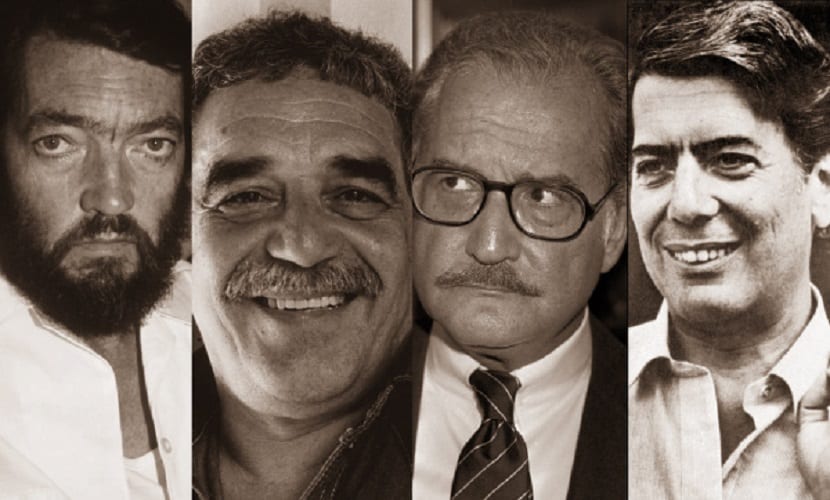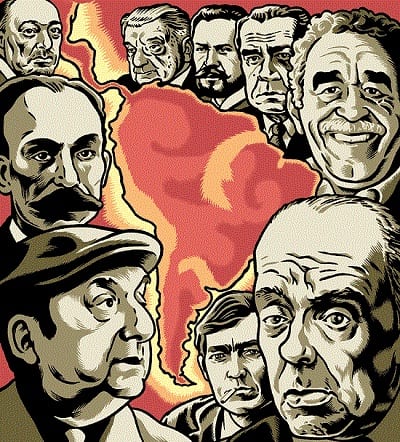There is no doubt that the twentieth century constituted the golden age of Latin American literature. Since the beginning of the century, narrative activity increased in the continent, thus new authors were born who would later become, from the 40s to the 70s, great names in not only Latin American but also international literature.
Trends in narrative
At the beginning of the XNUMXth century, the Spanish-American novel opted between two highly differentiated positions:
- Modernism: from which the short stories of fantastic themes by the hand of the great Rubén Darío. In this trend, well-known names such as the Argentine poet Leopoldo Lugones as well as the Uruguayan Horacio Quiroga, one of the best-known "storytellers" of his time, stand out.
- Realism and naturalism: Under the name of this trend, several novel modalities stand out:
- On one side is the novel of the mexican revolution.
- We also have the indigenous novel (The one that denounced the oppression of the Indians for purely economic interests).
- And finally, we find the earth novel, which touched on topics such as the armed conflict between civilization and barbarism, caciquismo, etc.
Even so, this novel would still be light years from the European.
The narrative between the 1940s and 1960s
Es from 1940 when the Hispanic American narrative suffers a lucky renewal: urban themes are expanded, innovations of European and North American narratives are incorporated, as well as the irrationality of the emerging surrealist movement of the moment.
Some of the big names in recent Latin American fiction
It is at this time that these great authors known to all stand out:
- Jorge Luis Borges: His work constitutes an indisputable precedent for all subsequent narrative. Mix the philosophical and the metaphysical with the fantastic, the mundane and the ironic. His novel is situated exactly between the avant-garde and the new forms of the novel. This author stood out above all for his stories, published in «Fictions» (1944) "The Aleph" (1949) and "The sand book" (1975)
- Juan Carlos Onetti: This Uruguayan author who died in 1994 wrote stories and novels with a heavy pessimistic vision of existentialism. His works stand out "The shipyard" y «Corpse Board».
- Ernesto Sábato: In his works, Sábato spoke of crime, death, loneliness, human evil and stories of terrible and unfortunate loves. His work stands out "The tunnel" published in 1948.
- Miguel Angel Asturias: His most important novel is "Mr. President" and together with the author Jose Maria Arguedas, perfectly represent what was then known as the social narrative.
- Alejo Carpentier: The Cuban author of the novel "Age of Enlightenment", is the first to promote the narrative of the magical realism. From then on, other authors came out with this type of narrative, such as some of those that follow.
- Julio Cortazar: Known by all, the Argentine writer, author of the novel "Hopscotch" is characterized by its radical formal experimentalism and for his analysis of contemporary man.
- Augusto Roa Bastos: Paraguayan author of the work "I the supreme", Among others.
- Juan Rulfo: Mexican writer who becomes one of the masters of the new style with his stories.
- Carlos Fuentes: Highlights in narrative experimentation constantly analyzing in his work the social and economic problems of his country, paying special attention to the Mexican Revolution. He is the author of books like "The head of the hydra", published in 1978 and "The death of Artemio Cruz" (1962) among others.
- Gabriel García Márquez: Undoubtedly the best known and most read writer of the great Hispanic American storytellers. To say Gabo is to say Macondo, is to name "The colonel has no one to write to him", is to remember "One Hundred Years of Solitude" o "A Chronicle of a Death Foretold", among other great books that he left as a legacy.
- Mario Vargas Llosa: It is characterized by inquiring into novel narrative techniques as well as by the complexity of his novels.
Other names no less important than those seen so far
- Agustín Yanez (Mexican, 1904-1980).
- Mario Benedetti (Uruguayan, 1920-2009).
- Manuel Mújica Láinez (Argentine, 1910-1984).
- José Lezama Lima (Cuban, 1912-1977).
- Adolfo Bioy Casares (Argentine, 1914-1999).
- José Donoso (Chilean, 1925-1996).
- Guillermo Cabrera Infante (Cuban, 1929-2005).
- Álvaro Mutis (Colombian, 1923-2013).
- Osvaldo Soriano (Argentine, 1943-1997).
- Manuel Puig (Argentine, 1932-1990).
- Manuel Scorza (Peruvian, 1928-1977).
- Augusto Monterroso (Guatemalan, 1921-2003).
- Antonio Skármeta (Chilean, 1940).
- Isabel Allende (Chilean, 1942).
- Luis Sepúlveda (Chilean, 1949).
- Roberto Bolaño (Chilean, 1953-2003).
- Eduardo Galeano (Uruguayan, 1940-2015).
- Cristina Peri Rossi (Uruguayan, 1941).
- Laura Esquivel (Mexican, 1950).
- Zoe Valdés (Cuban, 1959).



To whom it may concern: Osvaldo Soriano died in 1997 and, in my opinion, Rodolfo Walsh (died, yes in 1977) is missing, who along with Truman Capote are the creators of the non-fiction novel (Operation Massacre was published in 1957).
Hi Walter!
Thank you for the note of the year of death of Osvaldo Soriano! We correct 😉
Regards!
Friends: a small correction: Mario Benedetti was not born in 1909, but in 1920.
Isabel Allende? Laura Esquivel? Read real writers.
Manuel Scorza died in 1983
Manuel Scorza passed away in 1983.